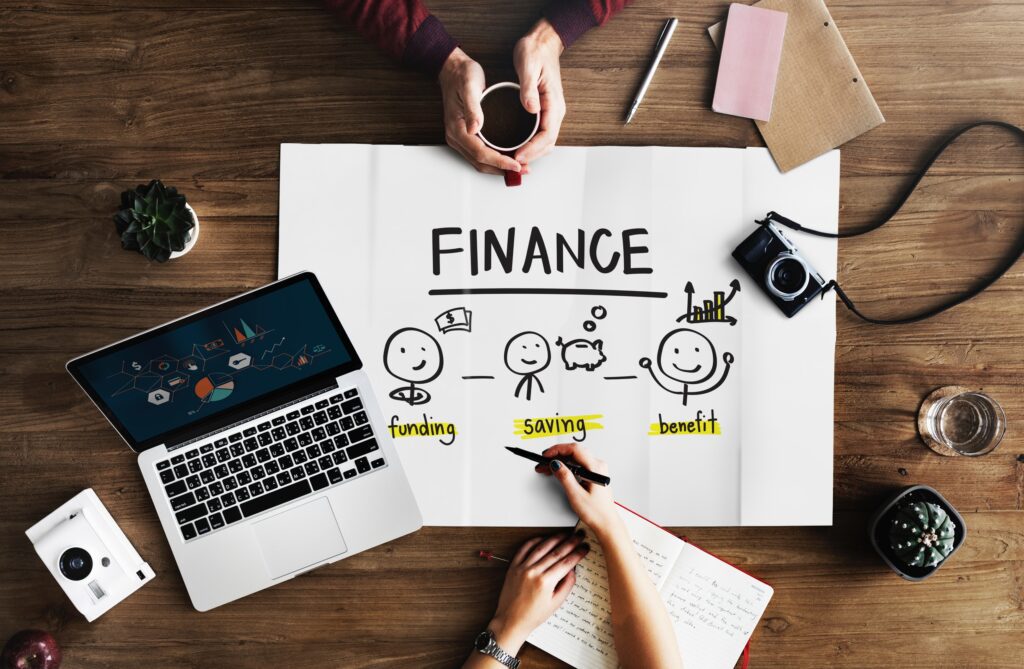Child allowances
In Germany, families are entitled to a federal child support and many families are in particular need of that contribution. Raising a child will cost you around 130,000 Euros until they reach the legal age. This is between 500 and 600 Euros per month.
The state grants a child benefit of around 200 monthly Euros for the first two kids each, ever since it’s been raised in July 2019. In alternative, parents may also get a so-called child allowance.
The latter mostly pays off for higher earners. It has also another huge disadvantage: it’s paid only once a year.
Let’s say, if you think about investing child benefit, the regular, monthly paid out child benefit is more convenient. Especially, if you depend on a part of the allowance in order to afford clothes, school books, and other children-oriented intrinsic values.
Am I Allowed To Invest Child Benefit?
Generally, you can financially handle child allowance just the way you want or need to. And no, there’s no need for a bad conscience, if you make use of the money to make ends meet once in a while.
However, the original idea of this governmental allowance is, of course, to provide for your child with it — and yes, that does include provision planning.
By investing child benefit, you can ensure your children’s access to higher education or grant them the possibility to start an apprenticeship in a place further away from home that might require renting their own apartment.
Investing child benefit means simplifying your own and your children’s lives later on, because there’s a comfy nest egg awaiting them.
What You Need To Know If You Want To Invest Child-Care Allowance:
You and your offspring will benefit the most from your investing child benefit, if you’re prepared for taxes, exemptions, and duration or their linkage with certain life events your child will face.
We provide the most pressing information here, and if you feel like diving deeper into the issue, feel free to contact our experts and ask them everything you want to know in a personal conversation.
How Much May I Save For My Kid?
You can put as much of the monthly child allowance aside as you want or can afford. Just make sure you remember the German savers’ standard deduction, if you invest child-care allowance in security deposits or ETF accumulation plans, since it affects children, too.
As soon as children have an income, which is the case with investments with yields, they are taxable in Germany.
A child should, hence, not earn more than 10,005 Euros per year, returns included, to avoid paying taxes on income, capital yields, and extraordinary expenses.
This amount consists of the basic standard deduction of 9,168 Euros (9,408 Euros from 2020 on), the annual savers’ standard deduction of 801 Euros, and the extraordinary expenses’ standard deduction of 36 Euros per year.
The increase of the basic standard deduction in 2020 will make it possible for you to invest up to 10,245 Euros in the name of your kids with no fiscal disadvantage.
Should I Invest Child Benefit In My Or My Kid’s Name?
If you want to invest child benefit, you have two ways to financially handle child allowance: Either you opt for economizers or security deposits directly registered at your child’s name — this, however, depends largely on the bank, since they are free to decide whether or not they set up bank accounts, deposits, and financial products in the name of children below legal age.
Or you choose to open accumulation plans and such in your name. In this case you should, however, absolutely draft a donation agreement that unequivocally benefits your child. This way, the state will clearly know that the money is not at your disposal.
You really would want to avoid misunderstandings with the revenue board for taxation reasons, if you want to financially handle child allowance that way.
If you want to save money and invest child benefit in your kid’s name, his or her savings account or deposit must not contain more than 7,500 Euros.
Every amount beyond that limit may affect their future entitlement to Federal Support in Education negatively, if ever your kid would want to make use of state support.
Furthermore, savings beyond 7,500 Euros might affect their health insurance status — for your child to remain covered by your family insurance, it may not own more than 5,100 Euros plus the savers standard deduction of 801 Euros every year. Otherwise it will need his or her own health insurance.
No matter, if you plan on investing child benefit in yours or your kid’s name: the management will in any case be up to you. A deposit directly registered in your child’s name, however, may cause difficulties in terms of said management.
You have general access to their money, until your child has not reached the legal age. But, the bank and the state will, most likely, observe very closely what you’re doing with the invested child benefit.
If you want to make larger investments, maybe buy a house, with the money originally saved for your kids, you will need the family court’s permission to do so.
If you want to spend the saved-up money or parts of it for educational expenses, such as school trips, the revenue board might rate the respective withdrawal as financial benefit for yourself.
That means, worst case, you will entirely lose your fiscal advantage and will have to subsequently pay the taxes you spared before, plus interests.
When Will My Kids Have Access To Their Money?
In general, your children will have full and sole access to their money, as soon as they reach legal age.
If you agree on an earlier or later access grant — maybe when they start an apprenticeship or university — with the bank or financial consulting agency, this, too, might have negative effects on your tax declaration. In such cases, you will often have to pay taxes till payment or maturity date.
Should I Invest All The Money?
There is no general Yes/No answer to that question. It’s hugely dependent on how much you’re in need of that federal support.
In case of doubt, we recommend you observe your expenses or rather your demand of child allowance for a while and then go for an accumulation plan or security deposit that you can service at smaller rates. You will be able to increase the savings rate later on.
So, rather start-off with lower payments and make sure you have enough money available to ensure your children’s sustenance.
Can I Invest Child Support And Alimony?
Generally, you may handle child support and alimonies just as you financially handle child allowance. After all, it serves to guarantee your children’s keep.
However, stay aware to not exceed the standard deduction amount mentioned above, if you want to invest child-care allowance alongside alimony payments.
We advocate for deciding according to your personal need and demand of child support — your kids won’t benefit, if it has to renounce on each and everything at a young age just to have a cosier nest egg later in life.
Let alone the mentioned fiscal disadvantages that might come with higher savings.
What Could Or Should I Invest Child Benefit In?
After you’ve decided how much of your child benefit you want to invest, the next question is: how?
If you want to invest child-care allowance, it’s usually about ensuring and protecting your kid. So, you should not go for too risky investments here.
We consider ETF accumulation plans a perfect option to financially plan ahead for your child by investing child benefit. As opposed to actively managed stock funds, ETFs are cheaper, hence, promise higher yields.
Consider that, on average, actively managed funds have a 5% offering premium cost, plus a 2% management fee. The latter don’t have to be paid at all with ETFs and their offering premium is an average 0.5%.
At the same time, in 9 out of 10 cases, — which is basically always — the index beats an active stocks and funds management. Since ETFs reproduce the index, you will benefit from the best yields and from low costs when investing child benefit in ETFs.
What’s more is that active funds and exchange traded funds basically show the same development in terms of dynamic growth rate and annual value average. Under identical conditions with regard to savings rate and, where applicable, fixed duration, opting for ETFs is the smarter choice, if you want to invest child benefit.
Are you ready to invest your child benefit properly and need more information? Book a free 15-minute appointment with us!





